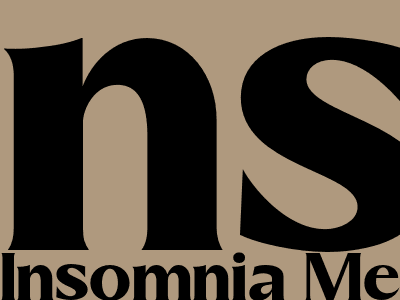Insomnia: A Comprehensive Guide to Understanding Sleeplessness
Unveiling the Complexities of Insomnia
Insomnia, a prevalent sleep disorder, affects millions worldwide, leading to disturbed sleep patterns and profound implications on overall well-being. This intricate condition encompasses difficulty falling or staying asleep, resulting in inadequate and non-restorative sleep. Understanding insomnia's multifaceted nature requires a comprehensive examination of its causes, symptoms, consequences, and evidence-based treatment options.The intricate web of insomnia involves a convergence of factors, including psychological stressors, medical conditions, genetic predispositions, and lifestyle choices. Stress, anxiety, and depression frequently disrupt sleep patterns, triggering an insidious cycle of sleeplessness. Medical ailments, such as chronic pain or hormonal imbalances, can also disrupt sleep architecture. Moreover, genetic inheritance plays a significant role, with certain individuals exhibiting a heightened susceptibility to insomnia. Unhealthy sleep habits, including inconsistent sleep-wake cycles or excessive caffeine consumption, further contribute to the development of this condition.
Recognizing the Symptoms of Insomnia
Insomnia manifests through a constellation of symptoms that significantly impair sleep quality and daytime functioning. Difficulty initiating sleep, characterized by prolonged periods of tossing and turning, is a hallmark of this condition. Once asleep, individuals with insomnia frequently struggle to maintain sleep, experiencing frequent awakenings or difficulty returning to sleep after waking up during the night. Early morning awakenings, often accompanied by an inability to fall back asleep, are another common symptom. Daytime consequences of insomnia include fatigue, difficulty concentrating, irritability, and impaired cognitive performance.
The impact of insomnia extends beyond sleep disturbance, affecting various aspects of life. Reduced productivity at work or school, relationship strain due to irritability, and social isolation akibat loneliness are some of the consequences individuals with insomnia commonly face. Moreover, insomnia increases the risk of developing chronic health conditions, such as cardiovascular disease, diabetes, and obesity. The economic burden of insomnia is also substantial, with healthcare costs and lost productivity placing a significant strain on society.
Exploring Effective Treatment Options
Addressing insomnia requires a multi-faceted approach, encompassing both non-pharmacological and pharmacological interventions. Cognitive-behavioral therapy (CBT), a well-established psychological therapy, has demonstrated remarkable efficacy in improving sleep quality in people with insomnia. CBT focuses on identifying and modifying maladaptive thoughts and behaviors that contribute to sleep problems. Techniques such as stimulus control, sleep restriction, and relaxation training are central to CBT for insomnia.
In certain cases, pharmacological interventions may be necessary to alleviate symptoms of insomnia. Prescription sleep medications, such as benzodiazepines or non-benzodiazepine hypnotics, can provide short-term relief. However, long-term use of these medications is discouraged due to potential side effects and the risk of dependence. Melatonin, a naturally occurring hormone that regulates sleep-wake cycles, is another pharmacological option for insomnia. Over-the-counter sleep aids, such as antihistamines or herbal remedies, may offer mild relief but should be used with caution and in consultation with a healthcare professional.
Conclusion: Empowering Individuals with Insomnia
Insomnia, while a prevalent sleep disorder, is manageable with appropriate diagnosis and treatment. By comprehending the intricate nature of insomnia, its symptoms, and potential consequences, individuals can take proactive steps towards improving their sleep quality. Adopting healthy sleep habits, seeking professional help when necessary, and exploring evidence-based treatment options empower individuals with insomnia to break free from the cycle of sleeplessness and reclaim restful nights.

Komentar